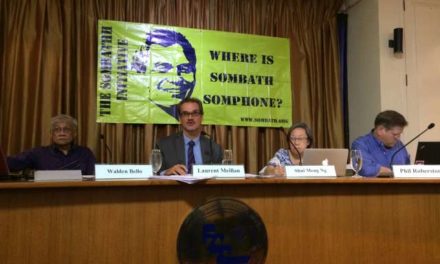New Delhi: After the contentious passing of the Civil Liability for Nuclear Damage Bill 2010 by the Rajya Sabha on 30 August, a coalition of organizations and concerned individuals have issued a statement provoking fundamental questions on the adoption of nuclear fission as a large-scale source of energy for India. The passing of the bill now by both houses of Parliament is expected to open the floodgates for nuclear reactor companies to establish new facilities.
The signatories to the letter point to several risks – disposal of nuclear waste, dangers from the construction of nuclear plants, environmental impacts of uranium mining and issues of land acquisition and displacement – that have been short-changed in the current debate.
With no known solution to the problems of nuclear waste such as plutonium 239 and uranium 238, which scientists estimate will remain highly radioactive for millions of years, the letter warns that regulatory frameworks will not suffice. With all the sites identified for the 60-odd new reactors in the pipeline being areas of high-density populations, the risks to human lives and the environment is immense, the statement warns.
The mining of uranium is the country is already extracting a severe toll on workers and their families. The letter highlights that health surveys done by medical experts near the Jadugoda uranium mining area show that mine workers and their families manifest significant increases in cancers and reproductive illnesses.
It was also brought to notice that despite having 17 nuclear reactors, India does not have a Nuclear Safety Commission that is independently constituted with powers to enforce information disclosure, frame safety rules, risk-assessment methodologies and protocols, issue periodic risk-assessment reports and conduct safety audits and put these in the public domain. The fear is that the Government will now put in place a framework that is undemocratic and non-transparent, one that privileges the interests of private operators at the cost of workers rights.
The letter also rejects the argument being pushed in some quarters that nuclear energy is a clean fuel and offers India a viable solution to the climate crisis and terms it as false and mere propaganda. Nuclear (fission) energy is carbon intensive, as the entire chain starting from mining the available poor quality ores to fuel rod fabrication to the enormous embedded energies of the power plant construction involves a massive amount of carbon emissions under the present energy supply scenario.
Instead of pushing this dangerous, costly and highly subsidised technology, the groups urge the government of India to focus on community-centred and decentralized renewable energy such as solar power which is climate friendly, abundantly available and poses little environmental and health risk. The push for nuclear energy was termed as yet another example of a development trajectory by which costs are transferred to the environment and local people, without their knowledge and full participation in the process of deciding development parameters. Signatories to the statement included groups such as Jharkhandi Organisation against Radiation-Jadugoda, People’s Movement against Nuclear Energy and the National Alliance of Anti-Nuclear Movements. (ENDS)
For more information contact: Soumya Dutta at [email protected]; Tel: 91-9213763756
ATTACHED: Statement on Nuclear Energy and Media release.









